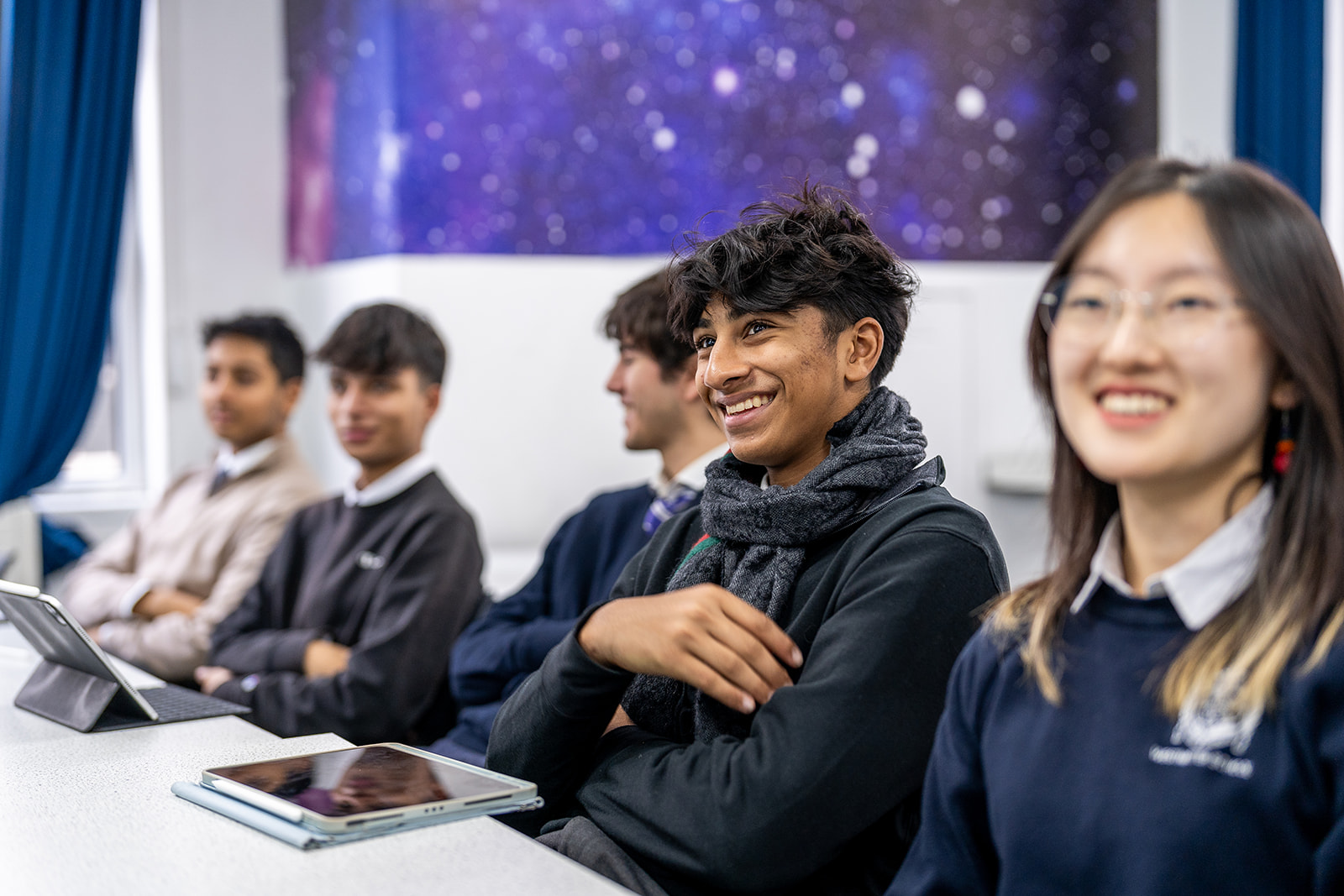Physics in the Lower School introduces a wide range of topics in a spiral of learning. We revisit and build on topics each year as pupil understanding develops and matures. Bucking the national trend to remove coursework from assessment, we value the skills developed in independent practical work and include a coursework element in the Lower Shell (Year 10). Pupils are offered opportunities to compete in problem-solving competitions.
About
Curriculum
Enrichment
Staff
After Westminster
-
About
Physics is a tremendous subject that combines numeracy in mathematical problem-solving with clear-thinking logic and communication. It encompasses the study of the universe from the largest structures to the smallest particles, from the start of time to predicting probabilistic futures, from pen and paper theory to hands-on laboratory work. No one specification or examination can test all of these wonderful skills. Our department of specialist physicists and technicians bring their love for the subject to the classroom and our internal scheme of work allows us to prepare pupils for examinations, for university and for life with our wide-ranging suite of opportunities to learn independently and to develop a powerful skillset.
-
Curriculum
Lower School
Syllabus & CodeEdexcel IGCSE 4PH1 PhysicsUpper School
Sixth Form (Year 12) physicists follow an internal specification that includes applied topics, such as electricity and material science, but also introduces gravitational fields and quantum physics. Teachers will go beyond the specification where appropriate and where interests lie to explore extension topics that include special relativity, optics, signal processing and rotational dynamics. We value practical and independent work, and all pupils pursue exciting internal coursework opportunities. We also ensure that all pupils are introduced to or develop their understanding of using code in computational physics. In the Remove (Year 13), topics include modelling, astronomy and particle physics alongside thermodynamics and electromagnetism.
Throughout the course, pupils will have opportunities to develop practical skills, practise data handling, use their imagination, use ICT as a research tool, increase their understanding of the importance of Mathematics in Physics and to see Physics in social and historical contexts. There will be internal coursework elements that will focus on using and developing instrumentation, and on collating and presenting information. The often deliberately open-ended nature of the investigative work reflects the emphasis on experiencing Physics as it really is.
Syllabus & CodeCAIE A Level 9702 PhysicsEnrichment
Physics offers a wide range of enrichment activities both as extra-curricular opportunities and integral to the internal course. These include lectures, independent projects, problem-solving competitions, engineering club, robotics competitions, presentations, seminars and astronomy evenings to name but a few. The department is exceptionally well equipped with a seismometer, solar telescope and up-to-date data-logging equipment, and there are opportunities to use the facilities for research. Indeed, some pupils have had their work published in journals. Our observatory offers incredible possibilities in astronomy, and we have developed a workshop to enhance pupil independence in practical project work. Pupils are also offered the opportunity to compete in physics competitions throughout the year.
Staff
* denotes Head of Department
Mr Ryan Anderson ( RDA)
† denotes Housemaster
Ms Bhavna Choraria (BC) †
Dr Dario Duo (DD)
Mr Matthew Perrins (MWDP)
Dr Helen Prentice (HJP) — Head of Physics *
Mr Sirio Quintavalle (SWQ)
Mrs Lydia Timpson (LXT) — Head of International Universities
Mr Charles Ullathorne (CJRU) — Head of Science *
Prof. Kevin Walsh (KAPW) — Astronomer-in-Residence
After Westminster
Those thinking of pursuing Physics, Physics with Mathematics, Theoretical Physics or Engineering at university should consider taking physics, Mathematics and Further Mathematics plus a fourth arts or science subject. It is extremely helpful to study Further Mathematics if a pupil is considering Physics or Engineering at one of the top universities. Without Mathematics, Physics cannot be taken beyond school level. Physics as a subject is well regarded by medical schools, so it is worth considering it with Biology, Chemistry and Mathematics. Many universities now offer degree courses in Physics or Engineering with a foreign language, so it could be worth combining Physics with a modern language. Beyond university, graduates with physics-linked degrees have skills (including numeracy, problem solving, data analysis and communication of ideas) that are in high demand in diverse sectors.
Astronomy
About this subject
Please find information on our Astronomy page.
 ""
""
